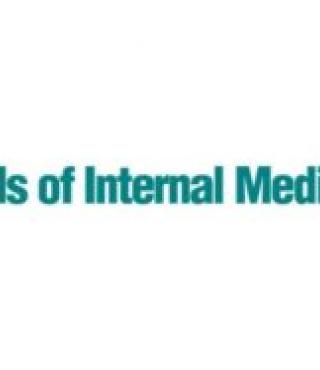Medicare issued a preliminary decision on January 11 to cover the controversial Alzheimer’s Disease drug Aduhelm only for patients enrolled in approved clinical trials. This decision will have ramifications for patients, providers, caregivers, Medicare beneficiaries, and even the FDA. The symposium held on July 23, 2021, and co-hosted by the Hopkins Business of Health Initiative (HBHI) and the Hopkins Economics of Alzheimer’s Disease and Services Center (HEADS Center) provides an important context for these stakeholders.
The approval of the drug– the first new drug approved to treat Alzheimer’s since 2003– marks a pivotal moment in treatment of the disease, said Dr. Howard Fillit, the founding executive director of the Alzheimer’s Drug Discovery Foundation. “We’re at the dawn of a revolution in Alzheimer’s research,” said Fillit, noting that Aducanumab is the first drug approved to target a biomarker of Alzheimer’s– an accumulation of a protein known as beta amyloid in the brain. While the drug has shown mixed results in slowing the cognitive declines that characterize Alzheimer’s and its hefty price tag puts it out of reach of many patients, the approval of Aducanumab signals hope that similar treatments that are more effective and more affordable will be available soon, Fillit said. More than 120 drugs are currently being developed to treat Alzheimer’s, which affects more than 6 million people in the United States.
The symposium was held just a few weeks after the FDA approved Aducanumab last June. Nine panelists shared their thoughts on the FDA’s decision, market access of the drug and issues related to Medicare. Panelists included Dr. Halima Amjad, a gerontologist and assistant professor in the Johns Hopkins School of Medicine, Holly Fernandez Lynch, a professor of medical ethics and an assistant law professor at the University of Pennsylvania and Dr. Caleb Alexander, a professor of epidemiology at the Johns Hopkins University. The discussion was organized by Dan Polsky, the director of the Johns Hopkins Business of Health Initiative, and moderated by Dan Gorenstein, the host of Tradeoffs. The Hopkins’ Economics of Alzheimer’s Disease & Services Center co-hosted the discussion.
Alexander was a member of a panel of experts convened by the FDA to analyze the efficacy of the drug. The panel voted unanimously, with one member abstaining, to not approve the drug; three members of the panel resigned in protest. Alexander noted that the FDA did not inform the panel that it was considering an accelerated approval of the drug. “I think the FDA missed an important opportunity to confer with the panel about this crucial scientific matter,” he said. “Had the panel been asked, you would have heard significant concerns.” He said there were two trials of the drug, one which showed it had no effect on memory and another that showed “ever so modest lessening of worsening” at the 18-month mark.
Yet panelist Dr. Marwan Noel Sabbagh, director of translational research at the Cleveland Clinic Lou Ruvo Center for Brain Health, pointed out that Aducanumab did noticeably reduce the amount of amyloid present in the brain. And Lynch noted that there was significant calls from the Alzheimer’s advocacy community to approve the drug. “The FDA catches a lot of flak for being slow and not giving people what they want,” she said. “It’s hard for the FDA to say to the patient community, ‘This drug is not the one you want. Wait longer.’”
Michael Atkinson, the husband of an Alzheimer’s patient, offered some of the most moving commentary of the symposium. He described the “heartbreaking” process of noticing memory declines in his wife, Claudia, a retired nurse. “This is the person I’ve spent my whole life with,” he said. “Extremely smart and creative. She could do anything.”
Alice Bonner, director of strategic partnerships for CAPABLE at the Johns Hopkins University, said the cost of Aducanumab – $56,000 per year– would be prohibitive for most patients. She urged patients, their families and providers to look into many of the services currently available that could improve quality of life for both those with Alzheimer’s and their caregivers.
Tricia Neuman, a senior vice president at the Kaiser Family Foundation and executive director of the Program on Medicare Policy, explained that if the Centers for Medicare & Medicaid Services were to cover Aducanumab, patients would still be responsible for 20 percent of its cost, about $11,000 per year, or more than one-third of the median individual income of Medicare recipients. And, if Medicare covers the remaining 80 percent of the cost of the drug for the millions of patients, premiums would undoubtedly rise.
Sean Tunis, a senior fellow at the Center for Evaluation of Value and Risk in Health at Tufts Medical Center, explained that Medicare officials would primarily focus on whether there was “adequate evidence the medication improves health outcomes” as they made their decision.




